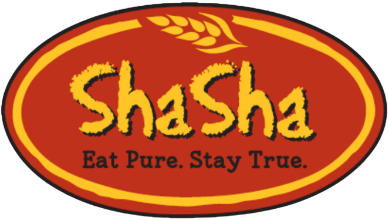 Hypercholesterolemia – it’s a mouthful, so let’s just stick to the easy-to-pronounce “high cholesterol” instead. High cholesterol increases your risk of heart disease, strokes and peripheral artery disease and is indicative of an unbalanced diet. Getting your cholesterol checked regularly is essential. In fact, if you haven’t had yours checked this year, get thee to a physician! Luckily, high cholesterol is relatively easy to cure with diet, exercise and a dollop of common sense.
Hypercholesterolemia – it’s a mouthful, so let’s just stick to the easy-to-pronounce “high cholesterol” instead. High cholesterol increases your risk of heart disease, strokes and peripheral artery disease and is indicative of an unbalanced diet. Getting your cholesterol checked regularly is essential. In fact, if you haven’t had yours checked this year, get thee to a physician! Luckily, high cholesterol is relatively easy to cure with diet, exercise and a dollop of common sense.
What exactly is cholesterol?
Cholesterol is a fatty substance that makes up the walls of cells. This means that not all cholesterol is bad. High Density Lipoprotein (LDL) is a variety of cholesterol that actually removes bad cholesterol and whisks it off to the liver for disposal. It’s the ‘bad’ cholesterol known as High Density Lipoprotein that does the damage. About 80% of our cholesterol is produced by the liver and the rest comes from our diet; mainly from animal products like meat and dairy. Feasting on flesh is not the only contributing factor; diet, weight, exercise, age and gender, diabetes, and heredity also affect your cholesterol count.
When do I need take action?
Cholesterol scores should ideally be below 200; scores above 240 are considered high. There are a number of medicinal cures one can take to lower cholesterol, but they need to be taken in conjunction with changes in your diet and exercise regimen. For those of you who would prefer to forego the meds, there are ways to reduce your cholesterol levels naturally.
Cholesterol reducing foods
 Oatmeal and foods which are high in fiber help to reduce the absorption of cholesterol through your blood stream. Add tons of fruits and veggies to increase your fiber intake. You can lower your cholesterol by 4.4 percent if you eat just a quarter cup of almonds a day. Combat high cholesterol by increasing your LDL intake. You can find LDL in foods rich in omega-3 fatty acids. Salmon, halibut and tuna are the best choices here. Walnuts and flax seed will also help to boost your omega-3 intake.
Oatmeal and foods which are high in fiber help to reduce the absorption of cholesterol through your blood stream. Add tons of fruits and veggies to increase your fiber intake. You can lower your cholesterol by 4.4 percent if you eat just a quarter cup of almonds a day. Combat high cholesterol by increasing your LDL intake. You can find LDL in foods rich in omega-3 fatty acids. Salmon, halibut and tuna are the best choices here. Walnuts and flax seed will also help to boost your omega-3 intake.
Up your soy intake as it inhibits your body’s production of cholesterol. It can also act as a substitute for dairy and further reduce your consumption of high cholesterol foods. Red wine is good for you in moderation. It contains flavanols which reduce inflammation. These fun little flavanols are also found in cocoa, so a little dark chocolate every day will produce the same effect.
Beans, beans are good for your heart! 1/2 a cup of beans a day will lower your LDL cholesterol by 8%. This is mostly because of their high fiber content. Best bets are pinto, black or kidney beans. Substitute your butter intake with a plant-sterol based margarine to reduce your cholesterol by 3.5%.
Avocados are packed with heart-healthy monounsaturated fat; this fat raises HDL levels while reducing LDL. Avocadoes are also crammed with cholesterol-busting beta-sitosterol, a healthy plant-based fat that reduces the amount of cholesterol absorbed from food.
Cholesterol is something that can be controlled by diet and exercise unless it is dangerously high. Be sure to test your cholesterol levels every couple of years to monitor your progress. The foods listed above have so many health benefits beyond reducing cholesterol that they should be part of your daily diet.

